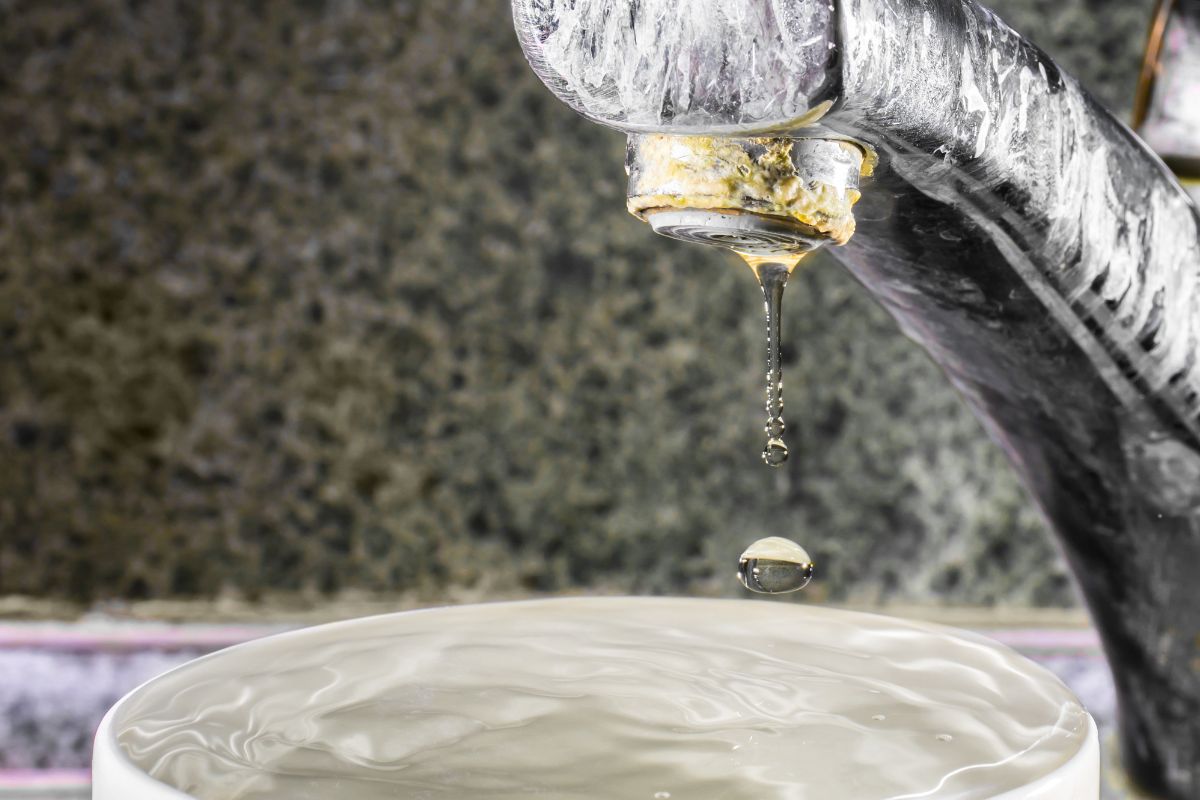It plays a very important role when cooking. Compared with any other ingredient, the final success of the recipe we will prepare depends on its quality. Even though it is always water, the truth is that depending on where we are geographically, the water that comes out when you open the tap can have very different characteristics, mainly due to the type and concentration of mineral salts dissolved.
What Is the Hardness?
From a hydrochemical point of view, the hardness or hydrometric degree is the amount of dissolved calcium and magnesium salts that water contains.
According to the study, the term “hardness” originated from domestic water use for cooking and washing. Some waters were “hard” to wash because the soap hardly foamed in them and because cooking certain foods was much more difficult. One of the first tests used to determine the hardness of water was precisely the ability to form foam using a standard soap solution.
Units to Measure Water Hardness
The most commonly used units to measure water hardness are mg/l of CaCO3 or French degrees (ºF), with the equivalence of 1ºF = 10 mg/l of CaCO3. Based on these values, the waters are classified as:
- Soft to very soft (0 – 15ºF)
- Semi-soft (15 – 20ºF)
- Hard (20 – 40ºF)
- Very hard (40 – 55ºF)
- Extremely hard (> 55ºF)
How Does the Hardness of Water Affect Us in The Kitchen?
The hardness of the water affects us in various aspects of our daily lives that have to do with cooking.
Cooking
As we already told you, the greater the hardness of this, the longer the cooking time will be to cook foods such as legumes which, in cases of extreme hardness, the soaking and cooking times can be double those necessary in a soft water area. In these cases, it is recommended not to add salt until almost the end of cooking and to add a little oil during cooking.
The taste of hard water Affect is usually very unpleasant, and we must always consider it, even when doing something as simple as a few ice cubes that could ruin our drinks. A solution to partially reduce the hardness of the water is to boil it and let it cool; in this way, part of the salts will precipitate, leaving this with less hardness than it initially had.
Cleaning
After cooking, in areas with hard water Affect, we will also need more soap or detergent to clean what we have soiled.
Maintenance of Household Appliances.
It produces varnish and lime deposits in pipes, heaters, boilers, dishwashers, coffee makers, and, in general, all appliances whose circuits are at a temperature higher than 40ºC. It is something that we must take into account. Account if we do not want their useful life to decrease considerably.
In the case of the dishwasher, if we live in an area with hard water Effect, we must pay special attention that the filter is in the appropriate position for it. We must consult the manual for the device to find the correct position and ensure that the salt tank always has the necessary quantity.
In the case of the coffee maker, we must clean and decalcify it periodically, following the manufacturer’s instructions.
Spots On Kitchen Surfaces
The so-called hard water is the main cause of water stains on surfaces.
It is called “hard” because it is highly saturated with minerals, which makes the consistency greater than water. When water is heated, it evaporates, leaving the minerals it contains on the surface where it evaporated. These minerals stick to surfaces, and when it all dries, they start to deteriorate the surface like some kind of corrosion.
Tips for Removing Hard Water Stains In The Kitchen
Vinegar
Vinegar is a good cleaning agent that dissolves mineral deposits and water stains. To remove hard water stains from a faucet, soak a cloth or paper towel in vinegar and, wrap it around the faucet, let it sit for a couple of hours. Rinse it with water and dry it with a clean cloth.
Baking Soda
Baking soda is another effective cleaning agent that can remove hard water stains and their residue. Make a mixture of baking soda and water and apply it to the affected area, such as a sink or metal slab. Scrub the area with a soft brush or sponge and rinse the area with water.
Lemon Juice
Lemon juice is acidic and can help to remove deposits and stains. Cut a lemon and rub it directly on the affected area, such as a faucet or sink. Later mix lemon juice with water and apply the solution to the affected area. Let it be for a few minutes, and wipe it with a clean cloth.
Install water softener system.
If hard water is a regular problem in your home, consider installing a softener system. It can remove minerals, such as calcium and magnesium, from the water with the action of water softener salts reducing the buildup of hard water Affect Kitchen stains and deposits in your kitchen and other areas of your home.
Conclusion
stains and deposits can be a challenge in the kitchen, but there are many simple and effective ways to remove them. Try using natural cleaners like vinegar, baking soda, and lemon juice, or consider installing a hard water softener for a long-term solution according to your comfort and budget.












